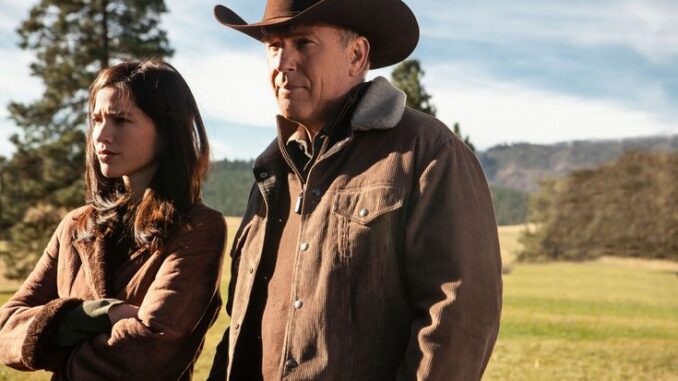
The Vacant Saddle: When John Dutton Rode Off into Controversy
The sprawling, sun-baked canvas of Yellowstone isn’t just a television show; it’s a saga etched into the American landscape, a modern epic of land, legacy, and the relentless fight for survival. At its stoic, weathered heart stood John Dutton, portrayed with an almost spiritual gravitas by Kevin Costner. He was the grizzled monarch of the largest contiguous ranch in the United States, a man whose very silhouette spoke of generations of hard-won battles and an unbreakable bond with the earth. So, when the news broke that Kevin Costner would be riding off into the sunset before the final season, leaving John Dutton’s fate to a narrative vacuum and sparking a firestorm of controversy, it felt less like an actor leaving a role and more like a cornerstone being ripped from the very foundation of the Dutton Ranch.
Costner’s portrayal of John Dutton was more than just a performance; it was an embodiment. He brought to the role decades of cinematic experience steeped in Western lore, a face etched with the kind of gravitas that could convey a lifetime of unspoken burdens. Dutton was not merely a character; he was the soul of the ranch, the embodiment of a dying way of life, a man whose principles, however flawed, were as unyielding as the mountains he surveyed. His presence was the anchor, the moral (or amoral) compass around which every other character revolved. To imagine Yellowstone without John Dutton was to imagine the ranch without its patriarch, the land without its sentinel. This symbiotic relationship between actor and character created an almost visceral bond with the audience, making his sudden, unceremonious departure a personal affront to many.
The controversy wasn’t merely about Costner’s choice, but the palpable void it created. Rumors swirled like dust devils across the plains: scheduling conflicts, creative differences, perceived slights. Regardless of the truth behind the curtain, the public perception was of a beloved figure abruptly excised, leaving a gaping chasm in the narrative. For a show predicated on the struggle to preserve a legacy, the abrupt departure of its central legacy-bearer felt deeply ironic, almost a betrayal of its core theme. Fans had invested years in Dutton’s fight, his triumphs, his tragedies. They expected a conclusion, an end worthy of his epic journey, not a forced exit that would inevitably leave his story feeling truncated, perhaps even posthumously cheapened by a necessity born of off-screen drama.
The implied death of John Dutton, an unseen demise forced upon the narrative by real-world exigencies, promises to be a seismic shift. How do you mourn a character you never truly saw die? How do you allow other characters to grapple with grief and succession when the very act of his departure feels so inorganic? It puts the showrunner, Taylor Sheridan, in an unenviable position: tasked with crafting a satisfying conclusion to a sprawling saga while simultaneously navigating the emotional and logistical fallout of losing its central pillar. Every decision – who inherits the mantle, how the ranch continues, the final fate of its inhabitants – will now be viewed through the lens of what could have been, what should have been, if John Dutton had been allowed to ride his story to its natural, earned conclusion.
Ultimately, the controversy surrounding Kevin Costner’s exit from Yellowstone before its final season, and the subsequent implied death of John Dutton, is a poignant illustration of the delicate balance between art and industry, character and commerce. It highlights the profound emotional investment audiences make in fictional worlds and the figures who inhabit them. For many, John Dutton wasn’t just a character; he was a symbol of rugged individualism, a flawed hero fighting for something bigger than himself. His forced departure, not by narrative design but by real-world friction, leaves a vacant saddle in the heart of the Yellowstone ranch, an indelible mark of what happens when the lines between the storyteller’s vision and an actor’s reality become irreversibly blurred, leaving fans to grapple with an ending that feels less like a grand finale and more like an unavoidable compromise. The land, as John Dutton often reminded us, endures – but forever changed by the absence of its patriarch.
